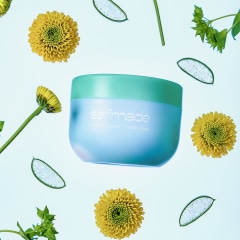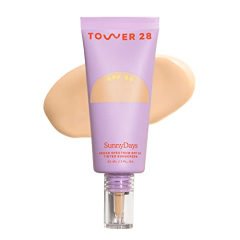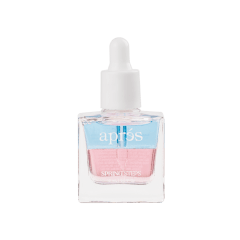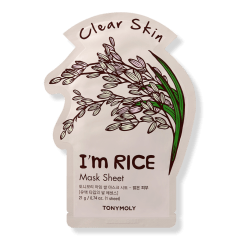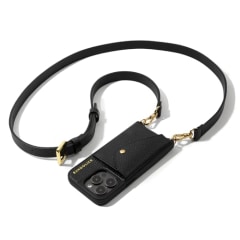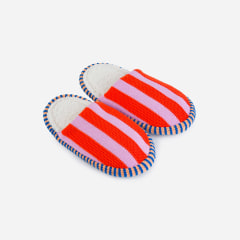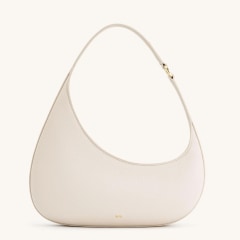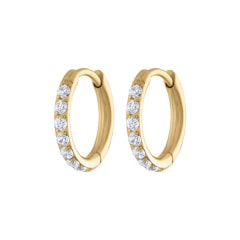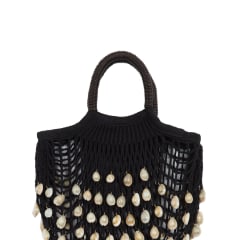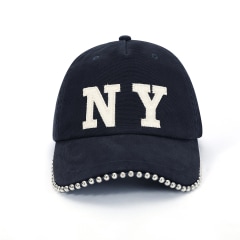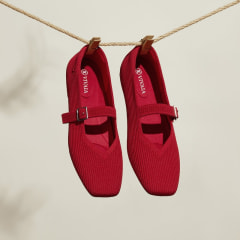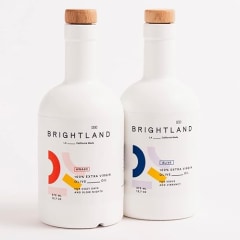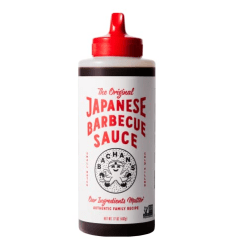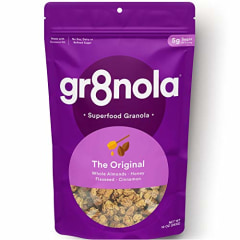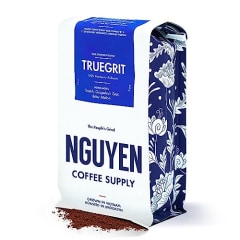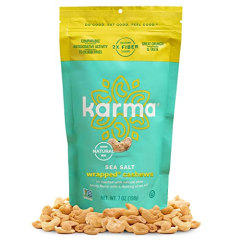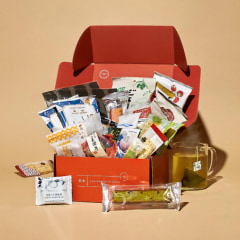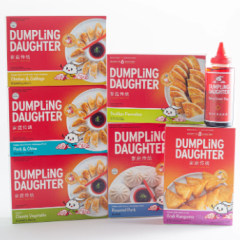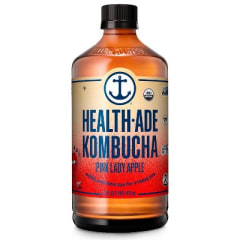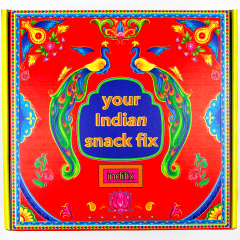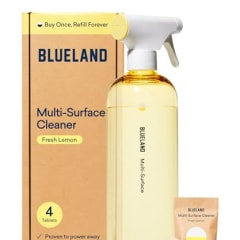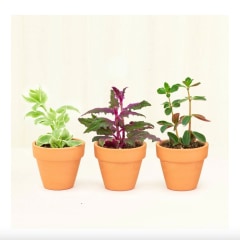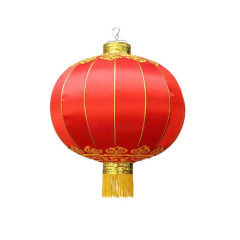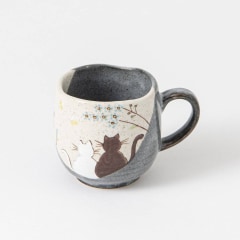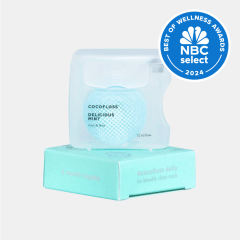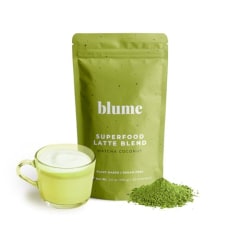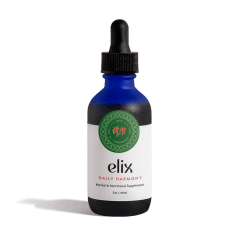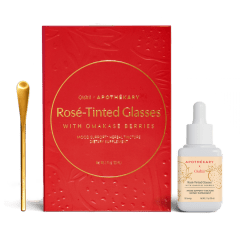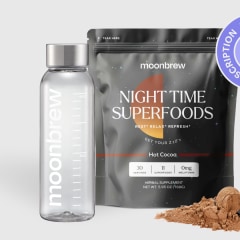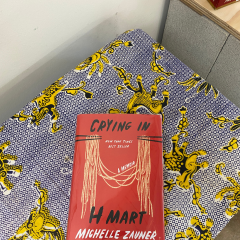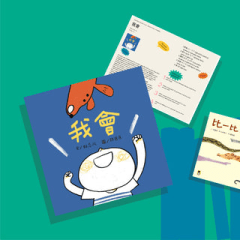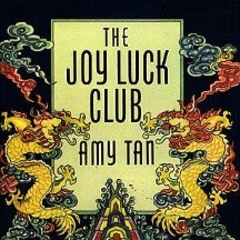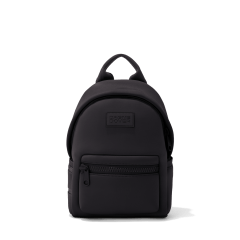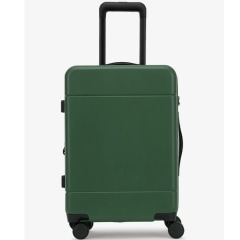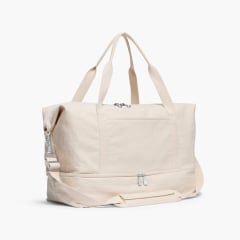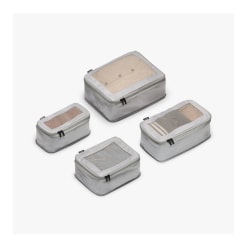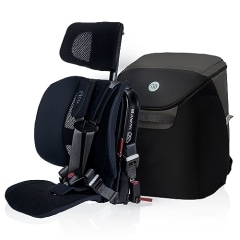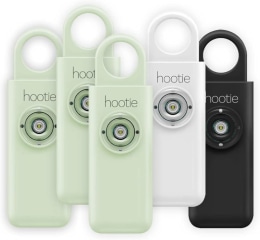Ming Yi and Ching Yeh Chen felt like they were “dropped in the middle of New York City’’ when they immigrated to the U.S. from China in 1965— they didn’t feel an immediate connection to American culture and struggled to access traditional items they grew up with in Asia. In 1971, the Chens opened the Asian goods market Pearl River Mart to bridge that gap.
The Chens imported their favorite soy sauces, clothing, kitchenware and more from Asian manufacturers, hoping to provide a place where their Chinatown community could find the products they missed from home, as well as share them with their broader neighborhood, says Joanne Kwong, the Chens’ daughter-in-law and the CEO and president of Pearl River Mart since 2016.
In the 52 years since Pearl River Mart’s opening, the number of Asian American business owners and creatives have grown across the country: In 2024, there were over 3 million AAPI-owned businesses in the U.S., according to the U.S. Chamber of Commerce.
“There is still a need for a store that centers the Asian American experience, but it’s different now,” says Kwong. “As the community grows and evolves, there are more people who can contribute to the movement, and we see ourselves as a place that helps to elevate Asian American entrepreneurs.”
The AAPI community is far from a monolith; it spans numerous cultures, countries and languages. To qualify as AAPI-owned, a business must be at least 51% owned by persons of Asian or Native Hawaiian and Pacific Islander origin. NBC Select connected with over 200 AAPI brands to confirm their ownership status. Below, we highlight a handful we think you should know about, many of which, like Pearl River Mart, are inspired by their founders’ heritage and cultivate a sense of cultural appreciation and tradition.
AAPI-owned beauty brands
Glamnetic
Before co-founding Glamnetic in 2019, Ann McFerran struggled when applying false eyelashes. To help save time and effort, McFerran, in partnership with Kevin Gould, created magnetic lashes, which at the time was a first-to-market concept, according to the brand. In 2020, Glamnetic expanded to press-on nails, keeping true to its mission of providing effortless and accessible beauty.
Then I Met You
In 2012, Charlotte Cho and her husband Dave launched Soko Glam, an online beauty marketplace that helped popularize the 10-step Korean skin care routine. But she didn’t stop there: Cho later received her esthetician license and launched her own skin care brand, Then I Met You. “I wanted to honor Korea’s rich beauty culture while highlighting the country’s incredible innovations in research and development, while infusing my unique point of view as a skin care expert and esthetician,” she says. The brand has essentials like cleansers, toners and sunscreen, as well as a newly launched gel barrier cream.
Pink Moon
After a series of unhealthy relationships, Lin Chen turned to traditional Chinese medicine and astrology for healing — to share her learnings, she launched Pink Moon. With an “East meets West approach,” Chen aims to make authentic Chinese practices accessible to U.S. shoppers. “Our products are created to be a part of daily self care rituals and to help people rediscover themselves and love themselves unapologetically,” she says. Pink Moon has moisturizers, face mists, fragrances, cleansers and more.
Selfmade
“Growing up in the south as a first-generation Asian American revolved around assimilation and following the rules, which was in direct contrast to my internal desire to get messy and make trouble,” says Selfmade founder Stephanie Lee. After college, she was a field organizer for Barack Obama’s presidential campaign and worked her way up to serve on First Lady Michelle Obama’s White House staff. Then, she became a global product developer at MAC Cosmetics.
Five years later, Lee left the corporate world to travel and reflect on her mental health and self worth. Eleven countries and 16 states later, she created Selfmade. “Belonging is a necessary part of life, and despite our individual uniqueness, it’s our collective lived experience of learning to love ourselves that connects us,” she says. Selfmade sells moisturizers, scrubs and serums based on psychodermatology, which involves the relationship of the mind and skin.
T3
Husband and wife duo Kent Yu and Julie Chung founded T3 in 2003 as a part tech start-up, part beauty venture while Chung was in medical school for ophthalmology (which she still practices today). The duo started the brand to advance technology around hair care, starting with a lightweight hair dryer. Now more than two decades later, the brand has a range of flat irons, curling irons, blow dry brushes and more.
Tower 28
Growing up in California in the ‘90s, Tower 28 founder and CEO Amy Liu was “surrounded by beach culture that idolized blond hair and blue eyes as a typical American look,” she says. Liu challenges that stereotype with Tower 28, a beauty brand for different skin types, tones and sensitivities. “As an Asian American woman, people are shocked when they learn that I’m the founder behind this beachy, L.A. beauty brand because I think they still expect someone who fits the more traditional standard,” says Liu. (Tower 28 was actually a real lifeguard tower in L.A., close to Liu’s office.) “On the beach, you truly do see every kind of person — age, race, socio-economic [status] — but it’s also a place where everyone gets to enjoy a healthy, fun lifestyle.”
More beauty brands to shop
AAPI-owned clothing and accessories brands
Bandolier
Bandolier founder Maggie Drake came up with the idea for the brand after seeing how often people lost their iPhones. Her solution: A crossbody bag that makes their iPhone into an entirely new accessory. Each adjustable Bandolier crossbody comes in multiple sizes to fit different iPhone models, ranging from iPhone 6 Plus to the iPhone 15 Pro Max, plus accommodates up to eight cards, including your driver’s license and credit cards. Beyond its signature crossbody, which comes in many designs and patterns, the brand also has backpacks, tote bags and zip pouches to take on the go.
Chunks
Chunks was created out of founder Tiffany Ju’s basement in 2019. “As a mother and a business owner, I loved a quick easy solution to get out the door quickly but still looking stylish,” says Ju. “I saw an opportunity in hair clips because they hadn’t really been refreshed since the 90’s.” A year after it kicked off, Chunks’ checkered claw clip went viral on social media, and now the brand offers more than 100 hair clips in various colors, patterns and sizes. In addition to small, medium and large clips to fit all kinds of hair types and styles, the brand also has different clip types to choose from, including French barrettes, claw clips, clasps and alligator clips.
Forme
Far from an average activewear brand, Forme designs FDA-registered wearables that help correct your posture and help decrease neck and back pain. Dr. Stephen Liu, an orthopedic surgeon, developed the brand after his mother suffered from poor posture and compressed lungs during late stage cancer. The posture wearables are designed to help cancer patients and everyday people looking to improve their own posture issues and spinal and musculoskeletal disorders, according to the brand. Beyond its viral sports bras, the brand also makes posture-correcting shorts, leggings and T-shirts.
JW Pei
Founded in 2018 by Yang Pei and Stephanie Li, JW Pei is all about accessibility in the designer bag space. The brand’s handbags — particularly its Gabbi bag — gained traction during the pandemic when they were seen in the hands of big-name celebrities. Now, JW Pei has dozens of handbag styles, most of which are made from vegan leather and under $100. The brand expanded its offerings to include shoes, jewelry and accessories, too.
Maison Miru
Maison Miru founder Trisha Okubo studied industrial engineering at Stanford University before conceptualizing the brand, which came about due to her interest in the sculptural and functional elements of jewelry. Since starting in 2016, Maison Miru is best known for its Nap Earrings with flat backs that make it easier to wear to bed and while laying down (unlike regular ear backs that tend to poke the skin). The brand has options for various piercing types, as well as other jewelry like rings, necklaces and charms.
Verloop
Verloop is a sustainable solution to the excess waste in the clothing and accessories industry. The knitwear brand repurposes deadstock yarn, which is the excess textile material left over during the production process on-site, to create whimsical clothing and home decor. The yarn comes directly from the knitting factory owned by Verloop founder Ella Lim’s family in the Philippines, which was started by her grandfather in the 80’s. The brand has slippers, totes, throw pillows, dog sweaters and more in colorful patterns and knits.
More clothing and accessories brands to shop
AAPI-owned food and beverage brands
Bachan’s
“Bachan,” a Japanese-American term of endearment for “grandma,” seemed like the only appropriate name for Justin Gill’s condiment company when it launched in 2013. After all, the brand’s Original Japanese Barbecue Sauce is derived from a family recipe his Bachan passed down to him. Today, that sauce is Bachan’s most popular product, and the company makes it in small batches with high-quality ingredients, just like Gill’s family has done for generations. You can purchase Bachan’s line of sauces — which also includes Sweet Honey, Miso and Yuzu — online and at retailers nationwide, including Whole Foods Market, Walmart, Target and Costco.
Bokksu
In 2016, Danny Taing founded Bokksu, a company that sells subscription-based Japanese snack boxes. He was inspired to start the business when he couldn’t find his favorite authentic Japanese snacks in the U.S., but his motivation went far beyond that: Taing also wanted to do something about the racism he witnessed toward Asian Americans. “What better way to do so than by sharing delicious, authentic food people may have never had before?” he says. “If they like it, then they’ll feel closer to that culture.”
Each month, Bokksu ships a box of 20 to 22 assorted Japanese snacks and teas to customers, which are chosen by Bokksu staff during monthly tastings. Everything inside the boxes is directly sourced from Japan and teaches people about Japanese culture through food, says Taing. Boxes also always contain a Culture Guide explaining each type of snack, its story and how to best enjoy it.
Brightland
Brightland founder Aishwarya Iyer’s ancestors were salt farmers in South India, so it’s fitting that her company makes elevated pantry staples like vinegars, honeys and some of our favorite olive oils. Iyer says Brightland prioritizes partnering with small, family-owned farms in California to produce its oils and vinegars, which helps ensure control over what goes into its products and so it can track where every ingredient is sourced. Brightland also gives back by helping plant trees in coastal California.
Gr8nola
Founder Erica Liu Williams left her decade-long tech career to pursue Gr8nola full time after running the company as a side hustle for five years. Her brand’s granola is free from refined sugar, dairy, soy and GMOs, and it’s available in flavors like peanut butter, cacao and cinnamon chai. As a member of the AAPI community, Williams aims to use her platform to help uplift voices like hers. “I feel socially responsible to myself, family and broader community to be a role model ... leading by example and showing other young girls and people who look like me that you can achieve success on your own terms, without succumbing to becoming a ‘model minority’ stereotype,” she says.
Karma Nuts
Ganesh Nair’s family has produced cashew nuts for over 90 years, and he wanted to find a way to combine that legacy with his decades of work in diabetes care. Karma Nuts was the answer. The company sells minimally processed cashews that still have their natural skins, which is where many of their nutritional benefits come from, including high amounts of antioxidants and fiber, according to the brand. Karma Nuts’ gluten-free, vegan and kosher cashews are available in flavors like cinnamon, cocoa dusted and golden tumeric, giving customers an alternative to the oil-fried cashews that Nair says commonly line store shelves.
Nguyen Coffee Supply
Nguyen Coffee Supply — which is one of our favorite coffee subscription services — imports coffee beans from its partner farms in Vietnam and roasts them fresh weekly in Brooklyn, says Sahra Nguyen, CEO and founder. You can purchase the brand’s coffee blends online and brew them at home with tools like the Phin Filter, which is a type of pour-over coffee maker.
Nguyen says AAPI heritage month is an important time for her community to share their stories. “Many people don’t understand our community because we’ve been erased and ignored for so long,” she told us. “Taking the time to learn about our community’s unique experiences will deepen our connection and sense of shared humanity. From here, we can effectively work together to build a better world.”
More food and beverage brands to shop
AAPI-owned home and kitchen brands
Birthdate
As an Indian-American, Ajay Mehta always felt a strong cultural tie to astrology and was fascinated with mysticism and horoscopes. But he noticed that there were no quality products for people interested in modern mysticism. “If you or a friend loved astrology, there were apps to use and websites to visit, but not a lot of personal or thoughtful products you could buy, gift or display in the home,” he says. He founded Birthdate to fill that gap. Among its Tarot Candle, Birthdate Candle and Birthdate Pendants, the brand sells its Birthdate Book, a personalized birth chart horoscope made by a professional astrologer and inspired by Kundali in India.
Blueland
When Paiji Yoo decided to reduce her personal plastic consumption, she quickly realized how difficult it was to do. “Many household items use single-use plastic in their packaging,” she says. “This ultimately is what led me to found Blueland.” The brand makes refillable cleaning products like glass and mirror, multi-surface and bathroom sprays, many of which are certified by the EPA’s Safer Choice program (and highlighted in our guide to eco-friendly cleaning supplies). In recent years, Blueland has expanded into the personal care space with its tablet-based hand soap and powder-based body wash. Blueland’s products have helped eliminate over 1 billion single-use plastic bottles from landfills and oceans since 2019, according to the brand.
Modi Toys
Siblings Avani Modi Sarkar and Viral Modi were inspired to start their company while searching for toys to put in their Hindu-American children’s playrooms. They wanted to help their daughters learn about their roots, as well as share knowledge about Indian heritage with kids across cultures. Modi Toys sells plush toys that resemble Hindu gods and sing mantras when you squeeze their bellies, as well as educational books. Since 2022, Modi Toys has exclusively manufactured their products in India, creating jobs for dozens of people in the community, according to the brand.
Outer
Outer sells outdoor furniture manufactured using eco-friendly practices and made with recyclable materials, according to the brand. Its founders both have backgrounds in furniture making — Jiake Liu’s family is involved in the outdoor furniture manufacturing industry and Terry Lin is the former head of furniture design at Pottery Barn. They put their knowledge together to make functional, stylish, durable pieces that encourage people to spend time outside, including modular sofas, dining tables and rugs. A key part of the business is Outer’s Neighborhood Showroom program: Using its online directory, you can connect with real Outer customers to learn about their experience with the brand’s products and see them in-person or virtually.
Pearl River Mart
Pearl River Mart carries clothing, kitchenware and home goods imported from Asia, as well as products made by Asian American-owned companies. CEO Joanne Kwong sees the market as “a jumping off point for AAPI entrepreneurs and their brands,” noting how challenging it can be for new businesses to capture shoppers’ attention. “It’s even harder for companies of color to distinguish themselves and get shelf space or media attention, so we take our role quite seriously,” she says. In addition to retail, the Pearl River Mart store has an art gallery and hosts events to showcase work by AAPI artists, chefs and authors. Kwong says Pearl River Mart is heavily involved in supporting its local AAPI community, too. It sells merchandise from businesses in Chinatown and all profits from those items go to the businesses that designed them.
Rooted
Moving to Brooklyn from Hawaii and California meant Kay Kim and Ryan Lee weren’t surrounded by nearly as much lush greenery. They filled their apartment with plants to feel more at home and say they instantly felt happier. Kim and Lee wanted to share the benefits plants offer with other city dwellers, so in 2018, they opened stores across New York City where people could shop for and learn how to care for plants. Now, Rooted is a fully online operation. It grows plants at its greenhouse in Central Florida and ships them to customers nationwide, and it has education plant care content available through its website and social media accounts.
More home and kitchen brands to shop
AAPI-owned wellness and fitness brands
Blume
Working in commercial realty, Karen Danudjaja’s days often revolved around coffee meetings and shots of espresso. But the caffeinated, sugary drinks began affecting her health, so she sought out a latte alternative that was actually good for her. When she couldn’t find one she loved, Danudjaja started Blume. The brand sells latte mixes made from superfoods like turmeric, matcha and beetroot, as well as hydrating electrolyte powders.
Cocofloss
In 2015, Chrystle Cu, a dentist, and Cat Cu, her sister, launched Cocofloss with one mission in mind: encourage people to floss by making a product that tasted delicious and thoroughly cleaned teeth. The sisters, who were born and raised in the Philippines before moving to the U.S. as young adults, also wanted to find a solution to single-use, disposable dental care products they found wasteful. The Cu’s designed their floss with 85% recycled polyester spun from water bottles, and now offer it in over a dozen flavors like mint, confetti, passion fruit and dark chocolate. You can refill dispensers with new spools of floss once they’re empty, or recycle them instead of throwing them in the trash. Cocofloss also sells toothbrushes and tubes of toothpaste made from recycled plastic.
Elix
When Lulu Ge, the founder of Elix, went off birth control, she experienced hormonal imbalances. That’s when she returned to the Chinese herbal remedies and practices she grew up with. Elix has several herbal supplements that target specific concerns, including menstrual cycle balancing, digestion and immune system health. You can also get a personalized formula based on a ~50 question assessment about your cycle and well-being (which involves submitting a photo of your tongue).
Pluto Pillow
Sleep is not one size fits all, but many pillows on the market are. Susana Saeliu’s company takes a different approach with its made-to-order pillows. Customers take a quiz about their material, thickness, length and cushioning preferences, as well as sleep habits and other related factors. The results of that quiz help the company match individuals with one of over 35 variations of its pillow, which gets shipped to the shopper’s home. Every Pluto Pillow also comes with a 125 night trial — if you don’t love the pillow the brand sent you, you can return it for a full refund within that time period.
Silk + Sonder
Meha Agrawal quit her career as a software engineer to build Silk + Sonder, a self-care subscription service. Agrawal says she was directly inspired by the stories of AAPI community members who were living to meet others’ expectations rather than chasing their own calling. But it wasn’t easy. “I needed to overcome those unique challenges around guilt, fear, and doubt that many of us face as children of immigrants,” she says.
Silk + Sonder sends members monthly themed wellness journals with guided prompts designed to reduce stress and anxiety. They’re formatted in the style of bullet journals with habit trackers. You can choose from monthly, quarterly or annual subscriptions, which provide access to the Sonder Club app virtual community for peer-to-peer support, virtual classes and workshops, daily affirmations and other benefits.
Sud Scrub
Once Ray and Steven Truoung learned how much bacteria and germs live on traditional loofah, they started developing an alternative. The twins started Sud Scrub in 2020, a line of antimicrobial silicone scrubbers that gently exfoliate and clean skin. The scrubbers come in two versions — one for the body and one for the face — and they’re plastic-free, 100% recyclable and last for over a year, according to the brand. For every product sold, Sud Scrub removes one pound of plastic from the environment with the help of its partner, Clean Hub.
More wellness and fitness brands to shop
AAPI-owned bookstores and educational brands
A Good Used Book
Founded by Jenny Yang and Chris Capizzi in 2017, A Good Used Book started as a pop-up bookstore in and around Los Angeles before opening up a physical location in Echo Park Village. It specializes in vintage paperbacks, which you can purchase in-store and online.
Arkipelago Books
Arkipelago Books has been a San Francisco staple for over 20 years, and it’s one of the only distributors of contemporary and historical Filipino titles outside of the Philippines, according to the brand. It distributes specialty books about Filipino literature, culture, social sciences, art, poetry and history to libraries, educational institutions and more. You can browse and purchase books through the Arkipelago Books website.
Curio
Curio is a subscription book club that partners with bilingual educators and publishers to find books designed to help teach kids ages 0-10 years old a foreign language, including Spanish, French and Chinese. Each language has two subscription boxes: one for kids 0-3 years old, and the other for ages 4 and up. You’ll first answer a short questionnaire to get your box recommendation. Boxes are shipped every 3 months and include three picture books around a specific theme, plus additional learning resources.
Eastwind Books of Berkley
For the past 41 years, Eastwind Books has served as a library for AAPI writers and academics and a hub for Asian American literature. Though the bookstore’s physical location in Berkley, California, recently shut its doors in April, it still serves as a publisher and hosts community book events. You can also still shop its collection of books, which include cookbooks, children’s books, fiction and nonfiction literature from AAPI authors, on its website.
Femme Fire Books
Navy veteran Vanessa Nicolle created Femme Fire Books as a way to celebrate the U.S. as a cultural melting pot and give a platform for women writers and authors of color. The bookstore was fully online until 2022, when it expanded to its first brick-and-mortar location in Jacksonville, Florida. Now, you can shop books from diverse authors both in-person or on the Femme Fire Books website.
Reading in Public
Reading in Public is a bookstore and cafe in West Des Moines, Iowa. Duke graduate Linzi Murray founded the bookstore after living in New York City during the pandemic shutdown, which led her to realize the community impact of bookstores. On its website, you’ll find fiction, non-fiction, children’s books and more, as well as audiobooks and events.
More bookstores and education brands to shop
AAPI-owned travel brands
Calpak
Edward and Judy Kwon, first-generation Korean immigrants, founded Calpak in 1989, and their daughter Jennifer Kwon has run the company since 2013. “We hope our products can be travel companions that are an extension of our customer, bringing a little more ease and joy to the journey,” says Jennifer. The brand makes minimalist and chic luggage and travel accessories, including duffel bags, backpacks and packing cubes.
Dagne Dover
Dagne Dover designs bags and backpacks that are stylish enough to transition from day to night; some have dedicated pockets for laptops, keys and water bottles, and others come with detachable shoulder straps so you can choose how you want to carry them. Melissa Mash, Deepa Gandhi and Jessy Dover founded the brand in 2013, and they’ve prioritized eco-friendly business practices since: Most of the brand’s bags are 100% vegan, and the founders created Almost Vintage, a platform that lets customers buy and sell used Dagne items.
Lo & Sons
Brothers Jan and Derek Lo founded Lo & Sons with their mother, Helen Lo, in 2010. Helen is a frequent traveler, and despite trying dozens of options, she couldn’t find a bag that fit her needs: lightweight, not frumpy and made without complex technology or features. Jan began helping Helen design her perfect bag, while Derek worked on branding, building a website and marketing. Now years later, Lo & Sons offers dozens of products like casual bags, weekender bags, laptop bags and wallets. Being an Asian American family-owned business influences its social impact, too: Lo & Sons partners with nonprofit organizations that support the Asian American community, like Heart of Diner, which delivers food to homebound and isolated Asian American seniors in New York City.
Monos
The Japanese concept of “mono no aware,” which centers around appreciating the beauty of fleeting moments, inspired Hubert Chan, Victor Tam and Daniel Shin to name their travel accessories brand “Monos.” The founders believe people are able to take advantage of those moments more if they travel with the right suitcases, bags, accessories and clothing. Monos’ products are simple and streamlined in design, made from durable vegan materials and the brand is Climate Neutral Certified.
Senreve
With Senreve, Coral Chen Chung aims to redefine luxury handbags to be useful, beautiful accessories people can use everyday, not just on special occasions. She was born in China, grew up in Los Angeles and worked across the world in places like Hong Kong and Paris — Chung uses the unique fashion from each place as inspiration to design her bags. Senreve offers handbags, backpacks, clutches and more made from 100% genuine full-grain Italian leather.
Wayb
Traveling with kids is no small feat, and no one knows that better than the founders of Wayb — Tio Jung, Michael Crooke and I.S. Jung — each of whom are dads. They started Wayb to sell products that support parents while they’re on the go with their children, including a portable car seat and travel bags. Wayb prioritizes using sustainable materials to make its products, and offers a program that allows customers to recycle the car seats they purchase from the brand if they no longer need them.
Why trust NBC Select?
Mili Godio and Zoe Malin are, respectively, the updates editor and reporter at NBC Select. To write this article, they connected with hundreds of AAPI-owned businesses to confirm that they’re at least 51% AAPI-owned. (To be considered a AAPI-owned business, a company must be at least 51% AAPI-owned, according to the Census Bureau.) Godio and Malin also rounded up notable products from AAPI-owned businesses across shopping categories.
Catch up on NBC Select’s in-depth coverage of tech and tools, wellness and more, and follow us on Facebook, Instagram, Twitter and TikTok to stay up to date.
